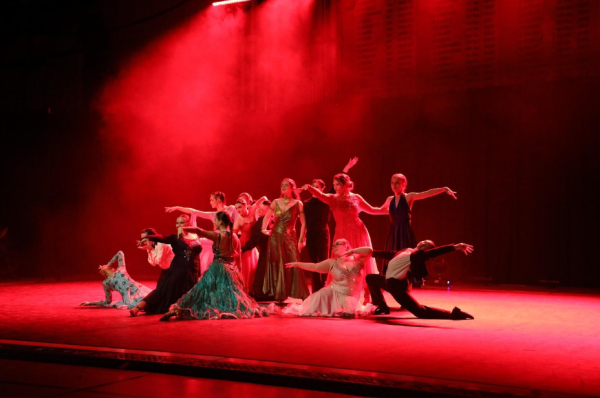This Day in History: British Parliament passes the tea act
When the East India Company was close to bankruptcy, a bill was passed by parliament to greatly lower their tea tax, in turn allowing the British government to gain a monopoly over American tea trade. This bill, passed on April 27, 1773, was called the Tea Act. Because all legal tea came from England, this allowed the East India Company to pay lower taxes and for Britain to sell the tea cheaply to the colonies.
According to British Prime Minister Frederick, Lord North, the bill was supposed to be good for the colonists since the tea they were to purchase was cheap. However, the colonists did not agree. They saw this lowering of tea prices as another example of Britain looming their power of taxation over America.
This event, The Boston Tea Party, resulted from the Tea Act and is still taught in schools across America.
Three ships, the Dartmouth, the Eleanor, and the Beaver arrived in Boston Harbor with tea from England. Colonists insisted the tea be returned, but governor Thomas Hutchinson of Massachusetts refused to send it back.
Patriot leader Samuel Adams organized the Boston Tea Party with roughly 60 members of the Sons of Liberty, a group of colonists who were radically anti-British, to participate in this act.
On the morning of December 16, 1773, the patriots, disguised as Mohawk Indians, boarded the three ships and dumped all the tea chests on board into the water. Roughly £18,000 of tea were lost — a $1 million valuation in today’s currency!
While the patriots hoped their rebellion would make a positive difference, more bills to restrain the colonists were all that they were given. Parliament was outraged when they heard of what happened to their tea shipment. Other destructive acts against British property, as well as the Boston Tea Party, led the British Parliament to enact the Coercive Acts.
Known to colonists as the Intolerable Acts, the Coercive Acts closed Boston to merchant shipping, established formal British military rule in Massachusetts, made said British officials immune to criminal prosecution in America, and required colonists to house said British troops.
The colonists reputed this use of British force by calling their first Continental Congress meeting. These meetings had to be held in secret since they were considered to be acts against the British government. The Continental Congress decided to consider a united American resistance to what they thought to be British oppression. The rest, of course, is history.





